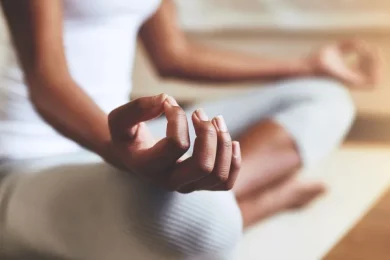We all want to be healthy. We all strive for that perfect mind and body balance, but oftentimes we go about it the wrong way. We focus on the physical aspects of health while neglecting the mental aspect. This is a huge mistake. The mind is just as important as the body when it comes to our overall health, and to achieve true wellness, we need to focus on both. In this blog post, we will discuss some of the common mistakes people make when it comes to mindfulness and how to correct them.
What is mindfulness and why is it important?
Mindfulness is the practice of being present in the moment and paying attention to your thoughts, feelings, and sensations without judgment. It can help reduce stress, anxiety, and improve mood and focus. There are many ways to be mindful, but some common practices include meditation, yoga, and spending time in nature. The goal of mindfulness is to help you become more aware of your thoughts and emotions so that you can manage them more effectively. For example, if you are feeling anxious about an upcoming exam, mindfulness can help you to better understand and manage those feelings. In addition, mindfulness can also help to increase your overall well-being by improving sleep quality and reducing stress levels. Ultimately, mindfulness is an important tool that can help you live a healthier and happier life.
The benefits of mindfulness
In our fast-paced, modern world, it’s easy to get caught up in the flurry of day-to-day activity and lose sight of the present moment. This can lead to feelings of stress and anxiety, as well as a sense of disconnection from ourselves and the world around us. However, there is a way to find calm amidst the chaos: mindfulness.
Mindfulness is simply the practice of paying attention to the present moment, with an attitude of kindness and curiosity. When we’re mindful, we’re not judging or trying to change our experience, but rather observing it with fresh eyes. This can be done through practices like meditation, yoga, and tai chi.
Research has shown that mindfulness can help improve our mental health in a number of ways. For example, mindfulness can help to reduce stress, anxiety, and depression. It can also improve sleep quality, focus, and attention span. Mindfulness has even been shown to increase grey matter in the brain and help protect against age-related cognitive decline.
Clearly, mindfulness is an important tool for maintaining our mental health and well-being. But how do we go about incorporating it into our lives?
How to practice mindfulness
The most common mistake people make when it comes to mindfulness is that they don’t practice regularly enough. For mindfulness to be effective, you need to practice it regularly. This means setting aside time each day (or week) to engage in some form of mindfulness activity. If you’re struggling to find time for mindfulness, try scheduling it in your calendar like you would any other appointment.
Another common mistake is that people often try to do too much at once. When you’re starting out, it’s best to keep things simple. Choose one or two practices and stick with them for a while. Once you’ve gotten the hang of those, you can add more practices as needed.
It’s also important to be patient and gentle with yourself. Don’t expect to be a mindfulness expert overnight. Like anything else, it takes time and practice to develop these skills. Be kind to yourself and don’t get discouraged if you find yourself struggling at first.
Finally, remember that mindfulness is about being present in the moment, not about getting things “right.” There is no perfect way to be mindful, and everyone’s experience will be different. The key is to simply be open to the experience and let go of any judgment or preconceived notions.
Now that we know some of the common mistakes people make when it comes to mindfulness, let’s take a look at how to correct them.
Correctly inserting mindfulness in your life
We are bombarded with advertisements for products that can help us improve our wellness. Yet many people ignore the power of natural alternatives, which have been used for centuries to promote overall well-being.
As a society, we are constantly striving for balance in all aspects of life: work/life balance, physical health/mental health, etc. It’s not surprising then that more and more people are turning to holistic practices as part of their journey towards achieving this balance. Holistic practices such as meditation or yoga can be incorporated into daily routines with very little time commitment needed; they also don’t require a lot of money to get started.
Mindfulness is another holistic practice that can be easily integrated into our lives. Like yoga or meditation, mindfulness can be practiced anywhere, at any time. It’s a great way to connect with yourself and the world around you, and it doesn’t require any special equipment or training.
The best way to start incorporating mindfulness into your life is by finding a practice that works for you. If you’re not sure where to start, try downloading an app like Headspace or Calm. These apps offer guided meditations as well as other mindfulness-based activities.
Alternatively, you can find holistic plants like Kratom powder that will help you achieve a mind/body balance as well. Kratom tea has been known to improve mood and elevate the mind on many levels and when people learn about this plant it makes them search Google for answers, which usually include the search “who sells Kratom near me?” The Kratom Family offers options to buy Kratom online so you can begin your journey to mindfulness right away.
Final Thought
Incorporating mindfulness into your life can be as easy as finding a few minutes to write in a journal or spend time outside. There are so many different ways you can practice mindfulness, from meditation and yoga to simply taking notice of what’s happening around you. The key is that mindful practices needn’t take up much time at all – they’re about being present in the moment rather than trying to “get it right.” If you want help incorporating these strategies into your lifestyle, reach out! Our team of experts would love to partner with you on creating an actionable plan for how best to balance work/life wellness while staying true to yourself.
Alton Clarke was born and raised in Syracuse. He has written for MSNBC, The Business Insider and Passport Magazine. In regards to academics, Alton earned a degree from St. John’s University. Alton covers entertainment and culture stories here at Diving daily.











